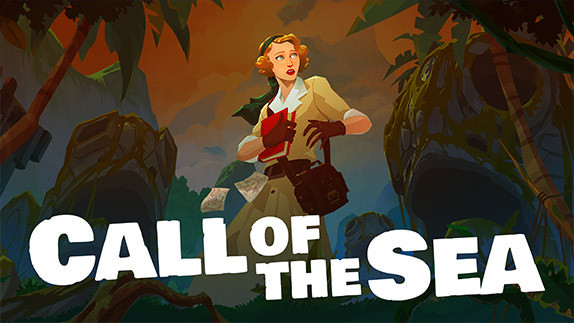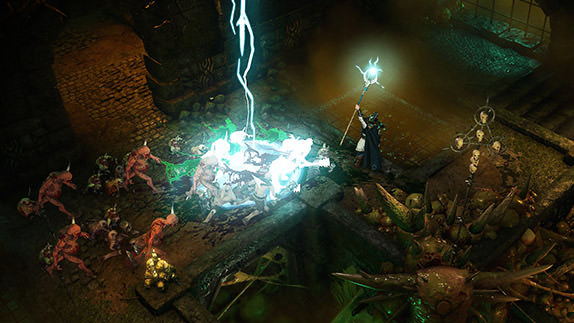Castaway Paradise Review

 By Kevin Mitchell | August 7, 2018
By Kevin Mitchell | August 7, 2018
When Animal Crossing finally released outside of Japan on the Nintendo GameCube, fans around the globe got their first taste of an addictive yet simple simulation. Of course, if you lived in Japan, you had already been playing the game since the Nintendo 64 era, which the GameCube received as an enhanced port with updates. Since then, the series has evolved through the handheld and mobile market, but I was never satisfied with the visual changes, mostly revolving around the horrendous rolling world styling. Castaway Paradise takes the classic Animal Crossing approach and brings with it a beautiful tropical paradise but is not without its own set of issues. Not to mention, it's releasing across Xbox One, PlayStation 4, PC, and mobile platforms that have been starving for this style of game.
That's not to say that there haven't been similar games already released, but one look is all it takes to realize the clear inspiration the Nintendo franchise had on the development of this title. While it was released on PC three years ago, the game just recently was released on console but seemingly isn't getting published on the Nintendo Switch. Using the relaxing, always-sunny tropical islands as the setting, Castaway Paradise comes close to matching the magic from the beloved Animal Crossing franchise, but some critical missing components and gameplay mechanics keep it from reaching that lofty goal.
Opening on a horrific scene of being caught out in a storm on the ocean, you awake covered in seaweed to the talking pig Viktoria, who just so happens to be mayor. After deciding if you are going to play as a boy or girl, you run through a brief tutorial that covers the basic mechanics you'll be using while playing. Although you can't alter the appearance of your character, who is the only human in the game, you can equip a wide selection of new hairstyles, clothing, shoes, outfits, etc. All are either earned from completing quests or by purchase using the in-game currency (pearls). Seasonal decorations are used to not only liven up your home (which starts as a tiny tent) but you can place items throughout the entire island, making it your own. Items available will change with the seasons, so right now you can get your hands on plenty of Summer-themed items.
It isn't long before you are set loose to rake soil, plant vegetables/trees, catch fish, and provide much-needed services to the villagers, all of whom are cheerful when greeting you, and all of whom are animals. Everything in the game is set on timers, but generally smaller tasks end much faster than trying to grow an entire apple tree from a seed. It still feels very much like a mobile experience, but it isn't too jarring, especially since there aren't any micro-transactions. However, when a timer expires, you won't see any change take place until you walk directly past it. What this means is, if you have a flower bed with freshly watered seeds, when you return after the grow timer reaches zero, you won't be able to see the fruit of your labor until you walk right next to them. Honestly, since you may return to the game a day or two later, you may forget exactly what was on a timer.
The local inhabitants of the island are always happy to see you, looking in appearance something closer to Tearaway than Animal Crossing, but I enjoy the stylized paper cut-out appearances. The first handful that you meet includes a hard hat-wearing baboon and a moose who just so happens to be the island's baker (once you repair the bakery, of course, for a large sum of pearls). The entire game is very colorful and charming but feels somewhat limited in areas you wish had more dynamic elements. Although the town center has a real-life working clock, there isn't a day/night cycle or weather in the game, and it seems to be perpetually a bright sunny day. However, the island's appearance will change during holiday events, such as Halloween and Christmas.
Castaway Paradise gives out experience for every task you complete, either through quests or by merely breaking rocks, planting crops, etc. Strangely enough, you don't earn anything for digging up tree stumps. Each level gained unlocks even more items for you to use. For this reason, you are given a laundry list of daily quests that can be completed on top of the requests from the villagers. Some may require you to have access to the other parts of the island (which are blocked off when you start), meaning you can get stuck on a single quest for quite some time. Even one of the first quests to catch an old boot while fishing took hours over the course of a few days. Without any multiplayer plans, the only social interaction in the game is tied to weekly online leaderboards based on the sizes of insects, fish, or shells you collect. It is supposed to show you the top ten, but the rankings cut off after the sixth one with seemingly no way to scroll.
The daily login rewards are a nice touch, but the game's start is quite slow, as you'll be waiting for timers quite frequently until the game opens up. The controls are convoluted to the point where specific buttons change actions for no real reason, and you'll use multiple buttons to exit particular menus. Using the net to catch bugs can be frustrating, as you have to approach them slowly, but your character stops moving to swing the net. In that brief moment, you'll most likely miss and have to keep tiptoeing forward in a trial-and-error pattern. The most significant offense is the looping music that seemingly doesn't change at all. After a couple of hours, I had to turn it off and have yet to turn it back on. Not only that, but the villagers don't make any sounds or noises when speaking. Finally, you are unable to run around, one of the best ways to get through the town in Animal Crossing, even if you can destroy flowers in the process. When visiting the inside of buildings, the interiors are surrounded by a yellow plaid backdrop, which I assume is due to the mobile roots of the title, but is visually an eyesore, especially on an Xbox One X.
Simply Put
Castaway Paradise is best played in small chunks of time on a daily basis. You'll want to keep checking in on your island paradise to clear out weeds, plant new trees, run errands, and decorate to your heart's content. However, more dynamic elements are needed to keep players wanting to come back after they have upgraded most or all of the island. The lack of day and night cycle stings, especially since the villagers seem to wander instead of focusing on a set schedule. While Castaway Paradise doesn't reach the true Animal Crossing experience, it is adequate for those looking for something relaxing on non-Nintendo platforms and is relatively cheap as a digital-only title.
Note: Castaway Paradise was reviewed on Xbox One. A digital copy of the game was provided by the publisher/developer.




